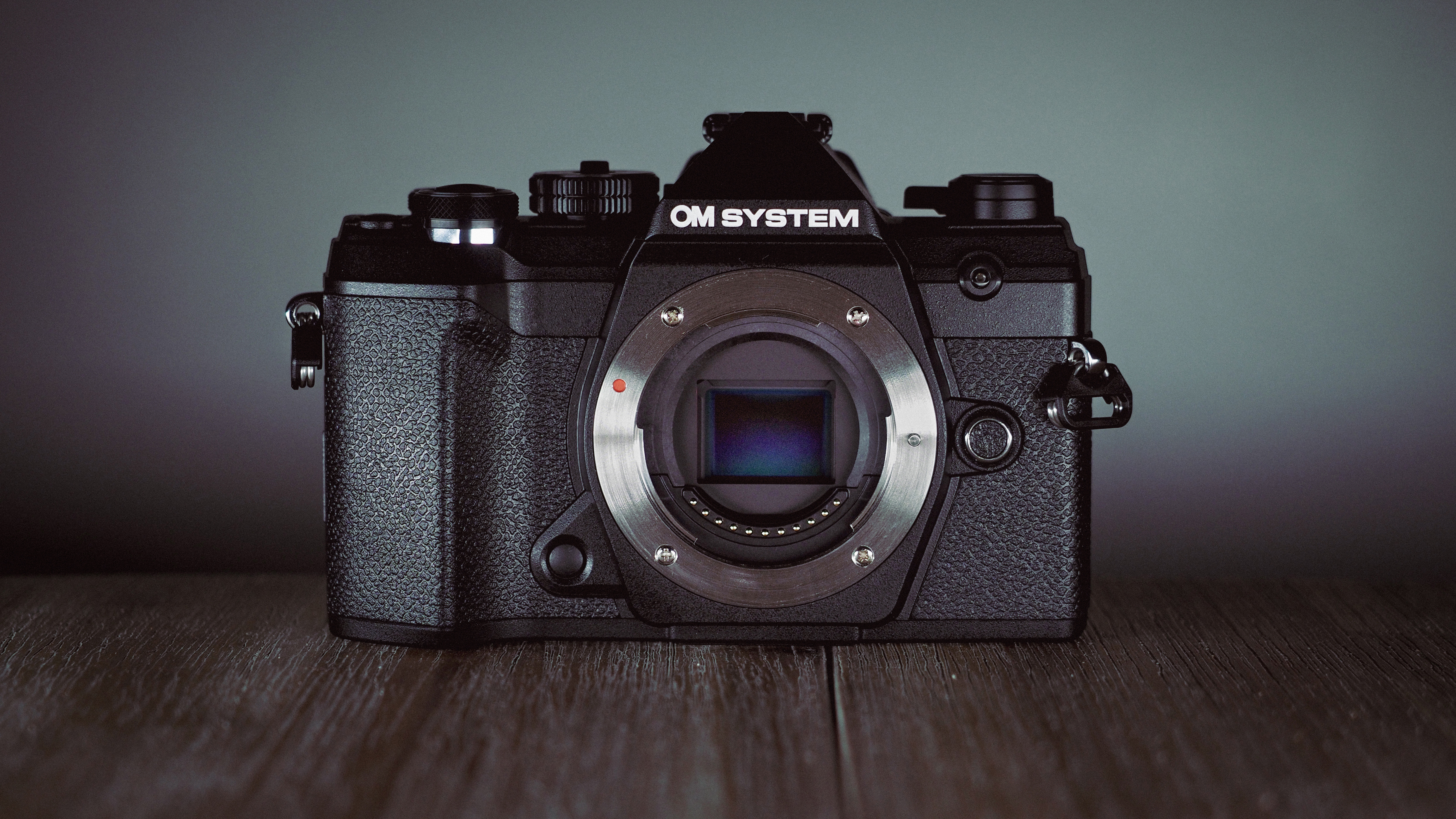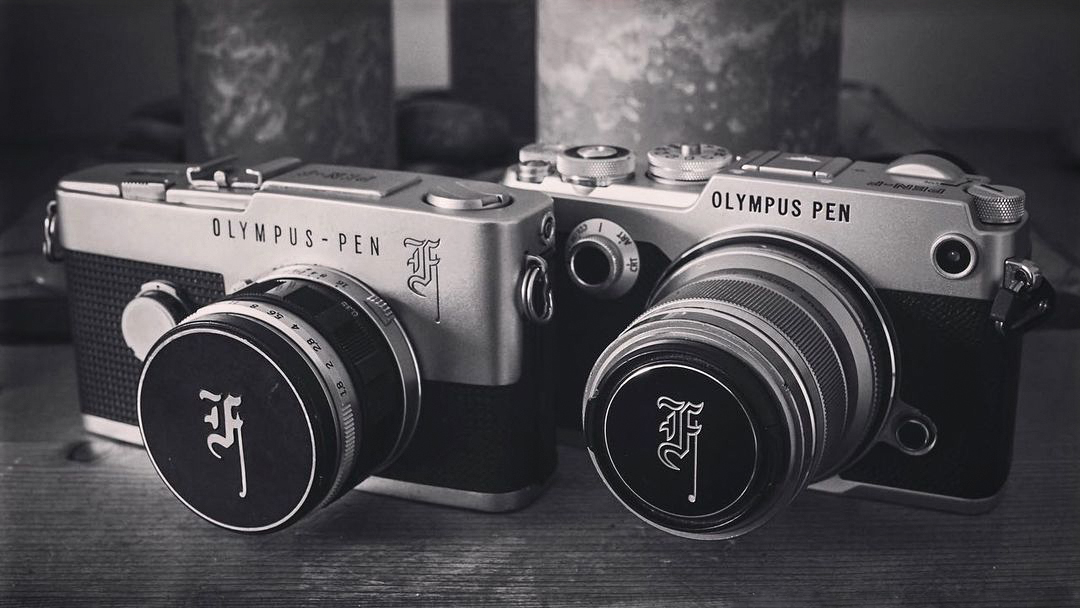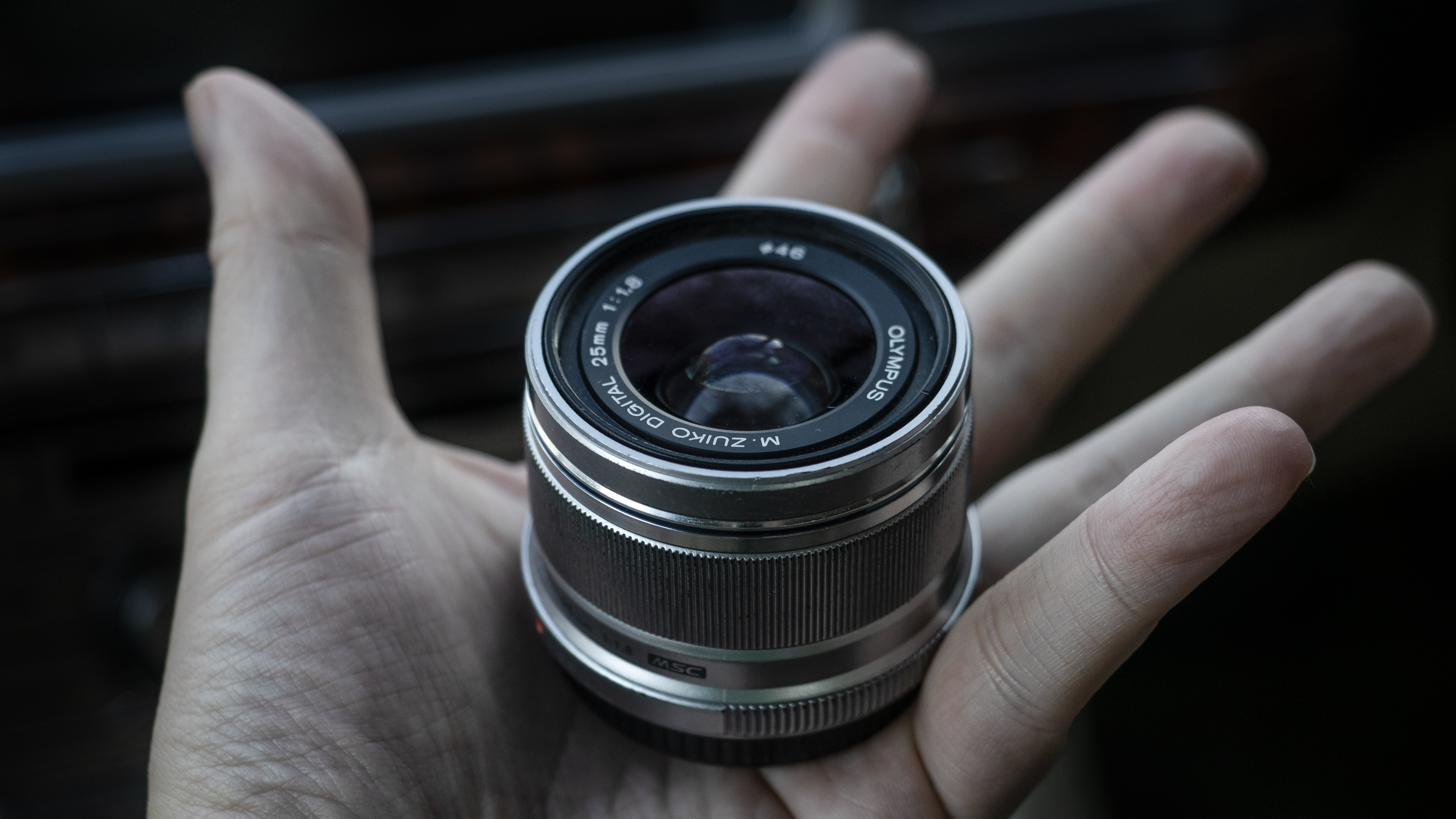
I'm one of the biggest Olympus fans out there. My second film camera was an Olympus (the OM-10). My first mirrorless camera was an Olympus (the OG E-M5). Olympus kit has been my go-to gear, both personally and professionally, for a decade now. I even bought my ex-partner an Olympus body.
I truly believe that the best Olympus cameras aren't just the best Micro Four Thirds cameras out there, but some of the very best cameras for photography period.
However, after a couple of less-than-ambitious camera launches, OM System is going to have to do something very special in 2024 to prove to the world that it's more than just "the company that used to be Olympus".
So what does that look like? How does OM show the world what it can do – and, with the mirrorless market more crowded than ever, how does it communicate its unique strengths to an overwhelmed public?
OM System in 2023: a quick recap

It has been a quiet year for OM System in terms of releases. Sony launched five cameras, including a new flagship; Canon launched four cameras and four lenses; Nikon launched two cameras and three lenses; even Leica and Instax, at completely opposite ends of the spectrum, launched three cameras apiece.
By contrast, OM released a camera and a lens. And some uncharitable journalists would say that it re-released a camera, given that the OM System Tough TG-7 was so similar in spec to the Olympus Tough TG-6.
The lens, though, was very well received. The OM System M.Zuiko 90mm f/3.5 Macro offers fantastic performance and some unique properties, thanks to the miracle of Micro Four Thirds, including a potential 8:1 reproduction ratio using a teleconverter.
Still, it's fair to say that 2023 wasn't the most active year from OM – made more pronounced by the fact that Panasonic, its opposite number in the Micro Four Thirds (MFT) space, launched a new flagship photo-oriented camera, the Lumix G9 II.
Not to mention Canon and Sony further encroaching on potential MFT customers in search of smaller bodies, with their similarly-sized APS-C cameras like the Canon EOS R50 and Sony A6700.
It's against this backdrop that OM steps into 2024, with perhaps a bigger target on its back than ever before.
2024: What to expect from OM System

Well, it's no secret what people want: more megapixels. OM System cameras plateaued at 20MP back in 2016, with the Olympus OM-D E-M1 Mark II. And this seemed to be the ceiling for MFT in general, until Panasonic broke out with a 25.2MP sensor on the G9 II – which puts it, in resolution terms, on par with most APS-C cameras from Canon, Fujifilm and Sony.
There is an expectation, then, for OM to similarly step up its sensor game. However, this comes at a seemingly mismatched time in the company's product cycle.
Having already launched its spectacular OM System OM-1 flagship camera in 2021 (which replaced the Olympus OM-D E-M1 Mark III), and then the enthusiast OM System OM-5 (replacing the Olympus OM-D E-M5 Mark III), the next in its triumvirate of OM offerings would logically be an OM System OM-10 (which would replace the Olympus OM-D E-M10 Mark IV).
The only problem is, the OM-10 would be an entry-level camera – hardly the place to debut a new high-resolution sensor. And yet, a new novice camera is a real essential for OM (particularly given that the E-M10 IV is one of the best cameras for beginners).
So, while I thoroughly expect an OM-10 this year – and for it, like the OM-5, to share a lot in common with its predecessor – I think we may be in store for another prestige product as well. Indeed, the rumor mill lately suggests that a high-end camera is coming in 2024.

So what could that look like? Well, I'm not alone in wishing for one camera in particular: a successor to the Olympus PEN-F, which may be my single favorite camera of all time.
In this context, I guess it would be called the OM System PEN-F. For those who don't remember, the PEN-F was a mirrorless 2016 reimagining of the PEN-F film camera from 1963. Years before the Nikon Zf and Z fc made it fashionable to reboot old film cameras (Nikon Df notwithstanding), Olympus was ahead of its time in bringing back an iconic classic that was dripping in style and designed for pure creativity, with flagship-sensor resolution and a Tri-X-like film simulation that is out of this world.
While the PEN-F was truly beloved by the photo community, it didn't find a mass audience back in 2016. However, in 2024 when retro-looking cameras have never been more popular, I think a new PEN-F would do gangbusters business. Heck, perhaps OM will even resurrect the Olympus Trip 35. Either way, a 25MP update would be an instant purchase for me and many others.
The other option I can see is a do-over of the Olympus OM-D E-M1X. Designed as a pro-body (with integrated grip) alternative to the E-M1 Mark II with more horsepower, it was geared towards speed and computational photography for wildlife and outdoor shooters – though it seemed to struggle to find an audience.
An OM System OM-1X, with a substantially different set of specs to the core OM-1, would perhaps fare better. There is still the question of whether Micro Four Thirds users actually want a pro DSLR style body (since the whole point of MFT is to have smaller gear), but as a launchpad for new sensor tech that trickles down to the OM-1 Mark II in a few years it would certainly make a lot of sense.
M.Zuiko = more Zuiko?

Olympus / OM's offering of M.Zuiko lenses has taken some curious turns in recent years. Again, as noted, MFT users are interested in (and OM is directly marketing them) cameras and lenses that are compact and lightweight – and specifically smaller and lighter than what is possible on full-frame or even APS-C systems.
So while it was great to have a range of f/1.2 pro prime lenses launch a few years ago, these jumbo-sized optics were very at odds with that ethos. Ditto the wild Olympus 150-400mm f/4.5 TC 1.25x IS Pro lens, which wasn't just enormous but also carried a safari-sized price tag to boot.
It looked briefly like we might get a line of f/1.4 primes, when the OM System M.Zuiko 20mm f/1/4 Pro launched in 2021 – but we've had nothing more since then. Could 2024 be the year that we get more?
Personally, I'd prefer to see OM go back to the glass that brought it to the dance in the first place: its pocket-sized primes. I'd love to see the brilliant M.Zuiko 17mm f/1.8, the M.Zuiko 25mm f/1.8 and M.Zuiko 45mm f/1.8 all get updated versions with weather sealing. Heck, give the M.Zuiko 12mm f/2 a weather seal and an f/1.8 aperture while you're at it, and I'll finally buy one!
However, what seems more likely is that we'll receive the long-roadmapped 50-200mm f/2.8 Pro and 50-250mm f/4.0 megazoom lenses – the former being particularly exciting,, as it's an equivalent 100-400mm f/2.8 in full-frame terms!
OM System in 2024: Predictions

We're going to get an OM System OM-10, I'm almost positive about that. And given the newfound chatter about a high end camera, my money is on either an OM System PEN-F (and my money would quite literally be on that one!) or an OM System OM-1X.
Of the two, Olympus / OM has been asked about a new PEN-F for years. The original (well, the mirrorless original) didn't sell in quite the volume that was hoped for in 2016, but 2024 is a very different beast. People are more interested in vintage-looking cameras than ever before – and they don't come more vintage or beautiful than the PEN-F. With the right marketing, this could be the camera that absolutely kills it for OM this year.
In terms of lenses, I'd love to see the tiny f/1.8 primes get revamped – and given that OM has been doubling down on the outdoor and adventure aspects of the MFT system, seeing them re-released with OM branding and weather sealing isn't impossible. But we're probably looking at the pair of wild megazooms, adding another couple of unique lenses to the super-rich MFT ecosystem.
Whatever it does, the next OM System product needs to come out of the gate with guns blazing. Its last two cameras were perceived as being a little too familiar by most of the market, so what's needed is a fresh product that's undeniably daring and different.
The rest of the industry has caught up with almost all of the company's USPs, from image stabilization to Pro Capture, so we need something new… or, indeed, something old, if it's a retro camera. It's time to bring it OM!
Take a look at the best Micro Four Thirds lenses, which consists of some of the best Olympus lenses (OM System). And check out the best waterproof cameras, too!







